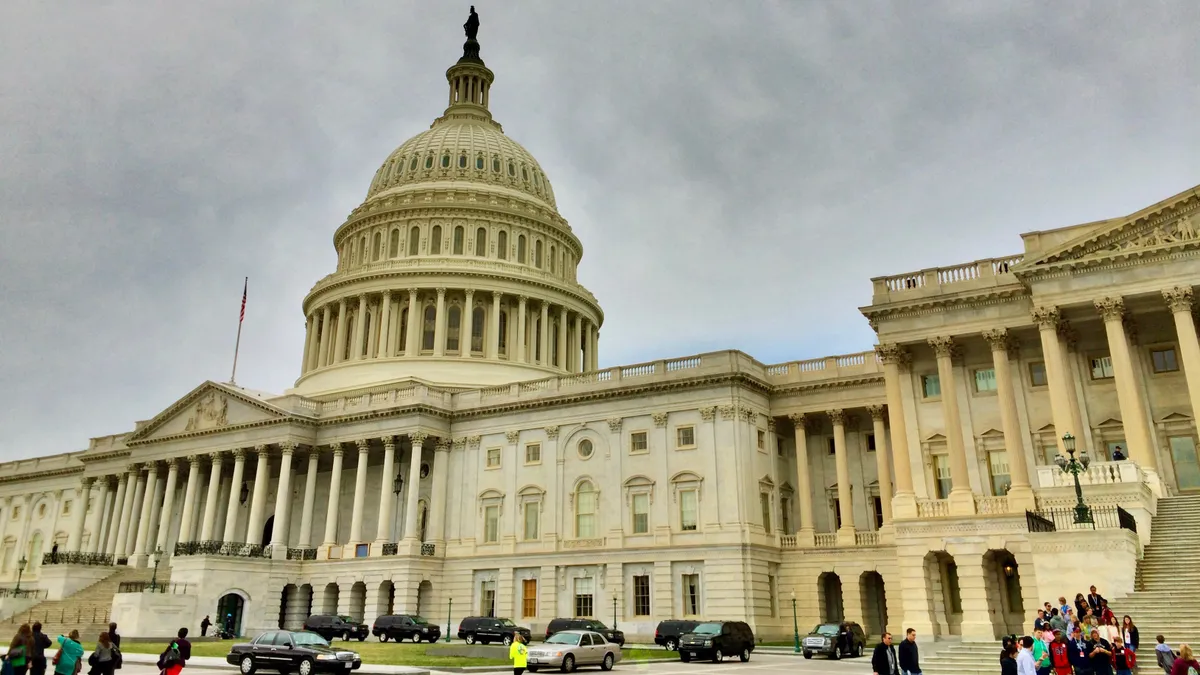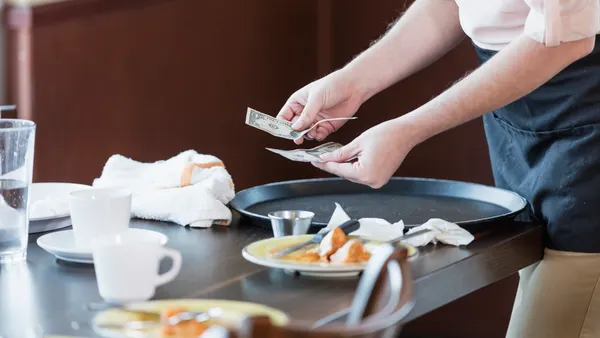Dive Brief:
- Attorneys general from 23 states and the District of Columbia sent a letter to Congress last week calling for changes to the Paycheck Protection Program. The attorneys general claim that they have received countless complaints about the program and requests for help navigating it.
- The requested changes include: barring lenders from favoring certain categories of applicants over others; saving a portion of future funding exclusively for minority-owned businesses without bank relationships; providing applicants with a centralized portal where they can check the status of their loans instead of going through the lender; better digital support; assistance for unbanked businesses; increased transparency about the parameters of the loans; and improved lender guidance.
- “Even the second round of funding looks likely to leave many small businesses underserved,” the letter states. “The chasm between those who need this money and those able to successfully secure funding undermines the program’s stated purpose of providing emergency relief to all small businesses adversely impacted by the COVID-19 crisis.”
Dive Insight:
The requested changes to PPP echo demands from the Independent Restaurant Coalition and National Restaurant Association, which argue that the loan program's requirements aren't designed with the restaurant business in mind and could hurt the industry's chances of recovery if adjustments aren't made.
Last week, the U.S. Department of the Treasury changed the loan's forgiveness requirements, and will no longer lower the forgiven amount of the loan if employees that were laid off by a business choose to not return to work. The NRA has championed this change as a major win for restaurants, since many operators are worried hourly employees may make more from unemployment benefits than they would if they resumed their restaurant job. The NRA had been calling for this amendment since April.
As part of the rule change, restaurants are now required to make job offers to furloughed employees in writing and and record that it was rejected by the employee.
Though the letter from the attorneys general amplifies restaurant calls for change and could help push through more changes from the Treasury, PPP's biggest pain point for restaurants shows no sign of policy revision. The program's 75% payroll expenditure requirement is a huge obstacle for restaurants who are operating with skeleton crews during government-mandated dining room closures, especially with more pressing costs like rent and utilities hanging over their heads.
The NRA has asked the Treasury and Small Business Association to lower the 75% requirement to 50% and extend the loans' eight-week terms. As it stands, these stringent requirements have made some restaurants that have qualified for PPP funding afraid to use the loans because of the potential penalties.
“Restaurants are looking to find a way to make PPP work, but a lot of them are concluding that they don’t think it’s for them,” Sean Kennedy, EVP of Public Affairs at the NRA, told Restaurant Dive in a recent interview. “If they get it wrong, they’re suddenly on the hook for yet another loan. And what restaurants really don’t need right now is more debt on their books.”













